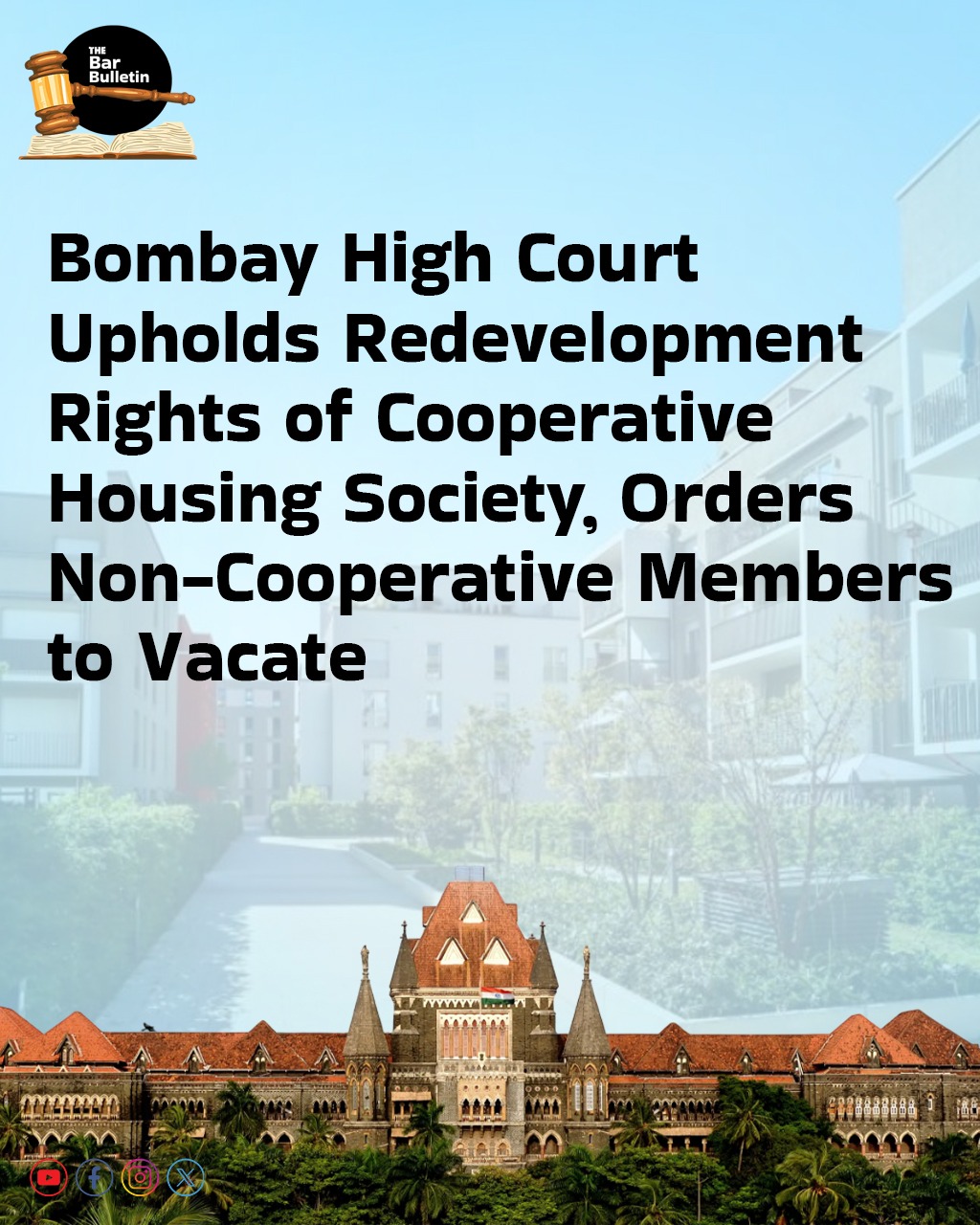The Bombay High Court (Bombay Bench) allowed an appeal, setting aside the Single Judge’s order refusing interim relief, and directed non-cooperative members of the cooperative housing society to vacate premises, holding that individual grievances on redevelopment benefits cannot obstruct society’s contractual obligations under a valid development agreement.
The appeals arose from a petition filed under Section 9 of the Arbitration and Conciliation Act, 1996 by the Developer engaged by a Co-operative Housing Society under a registered Development Agreement. While the society had already obtained statutory clearances and the majority of members had consented, but certain members resisted, citing alleged discriminatory allocation of additional area in the redeveloped building. This led to the developer approaching the court for interim measures to compel certain society members to vacate their premises and execute consent letters, facilitating redevelopment.
The Division Bench comprising Chief Justice Alok Aradhe and Justice Sandeep V. Marne extensively relied on established precedents, notably Girish Mulchand Mehta vs Mahesh S. Mehta[1], Ambit Urbanspace vs Poddar Apartment CHS[2], and Calvin Properties vs Green Fields CHS[3]. The Court reiterated that individual members are bound by the general body’s collective decision and development covenants. It clarified that any disputes over entitlements, such as the issue of additional area allocation, cannot obstruct redevelopment proceedings or defeat interim relief under Section 9 of the Act. The Court distinguished Avenues Seasons Properties LLP vs Nissa Hoosain Nensey [4], noting that only in cases where members claim that their properties are excluded from the society’s redevelopment process could courts refrain from granting interim measures.
The Court also observed that the resistance from a minority of members was based on grievances related to internal allocation of additional space, over which the developer had no control. It held that such grievances must be agitated before the Co-operative Court under Section 91 of the Maharashtra Co-operative Societies Act or by civil proceedings, and cannot be raised to defeat redevelopment proceedings.
Relying on this position of law, the Court thought it fit to intervene with the decision of the Single Judge Bench dated 20 June 2025. Accordingly, the appeal was allowed and the impugned order was set aside, along with directions to the uncooperating residents to execute consent letters and to vacate the premises in their occupation within a period of four weeks.
[1] 2010 (2) Mh LJ 657
[2] 2025:BHC-OS:9774 / Commercial Arbitration Appeal (L) Nos. 12585 of 2025 and 16482 of 2025 decided on 1 July 2025
[3] 2013 SCC OnLine Bom 1455
[4] 2024:BHC-OS:17367-DB / Appeal Nos. 42, 43 and 44 of 2024 decided on 22 October 2024
![]()



